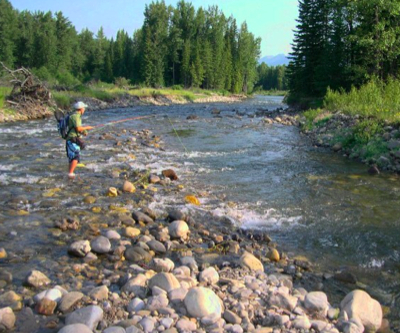Coal mines of British Columbia polluting river: US report

A new study conducted by experts at the University of Montana links B.C.’s Elk River Valley coal mining activities to toxic levels of selenium in waters streams.
The U.S. study, by Richard Hauer and Erin Sexton of the Flathead Lake Biological Station, compared water quality in the Elk River with the neighbouring Flathead River basin.
Commissioned by Glacier National Park, the report concludes that concentrations of selenium in the Elk River below the five coal mines operating in the area “exceeded both the B.C. guidelines and the U.S. EPA water quality standard.”
The report added selenium is “known to cause health problems in domestic animals and humans and is a well-documented problem in fish,” and that “the concentrations in the sites below the coal mining frequently exceed the values known to cause toxicity and abnormal development in fish.”
“We’ve basically learned that the Elk River is being poisoned,” Sarah Cox, interim director of the environmental organization Sierra Club of B.C., said in a press release.
According to Cox, there are five coal mines in the Elk River Valley, operated by Teck Resources (TSX: TCK.B) (NYSE:TCK), which supply a third of the world’s steel making coal. As well, there are four coal mine expansion proposals in the review stage, one new coal mine proposal and three exploration projects underway.
A spokesman for Teck told the Globe and Mail the firm had not seen the report yet, so it couldn’t comment on it. But in an e-mail statement added that the miner was committed to responsibly managing selenium at its operations in order to “ensure the continued health of the Elk River watershed.”
Along with Sierra Club, other groups calling for a moratorium on new coal mines in the area are CPAWS-BC and the Yellowstone to Yukon Conservation Initiative.
{{ commodity.name }}
{{ post.title }}
{{ post.date }}




Comments